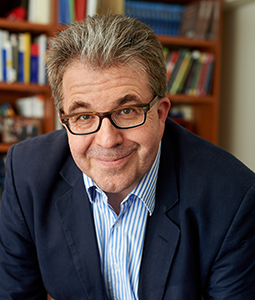
Christian Lequesne, holds BA and MA degrees from Sciences Po Strasbourg and the College of Europe, Bruges. He then got his Ph.D. in political science and his Habilitation in Sciences Po Paris. Assistant, Department of Political and Administrative Studies of the College of Europe (1986-1988). Research fellow and then Professor at Sciences Po since 1988, he was deputy director of CERI from 2000 to 2003, and director of CERI from 2009 to 2013. Director of the Centre français de recherche en sciences sociales (CEFRES) in Prague from 2004 to 2006, LSE-Sciences Po Alliance Professor at the European Institute of the London School of Economics from 2006 to 2008, member and vice-president of the Board of Directors of Sciences Po from 2007 to 2013. He is a regular visiting professor at the School of Government of LUISS University and the Diplomatic Academy in Vienna.
Co-Founder and Co-Chief Editor with Prof. Christopher Hill (Cambridge) of European Review of International Studies(Brill), member of the international advisory board of The Hague Journal of Diplomacy, Journal of European Integration; Politics in Central Europe, Politique européenne.
Member of the evaluation committee of the European Research Council (ERC); member of scientific councils of the Finnish Institute of International Affairs, the Institute für Europäische Politik Berlin, the Genshagen Foundation, Brandenburg.
Regular columnist in the daily newspaper Ouest France. Was awarded the F. Palacky social sciences medal by the Czech Academy of Sciences and Chevalier in the Ordre des Palmes académiques (France).
Recent books :
Ethnographie du Quai d’Orsay. Les pratiques des diplomates français, Paris, CNRS Editions, 2017, 255 p. (pocket 2020).
The Member states of the European Union(avec S. Bulmer eds.), Oxford, Oxford University Press, The new European series, 2020, 468 p.
Ministries of Foreign Affairs in the World. Actors of State Diplomacy (dir.), The Hague, Brill, Diplomatic Studies, 2022, 398 p.